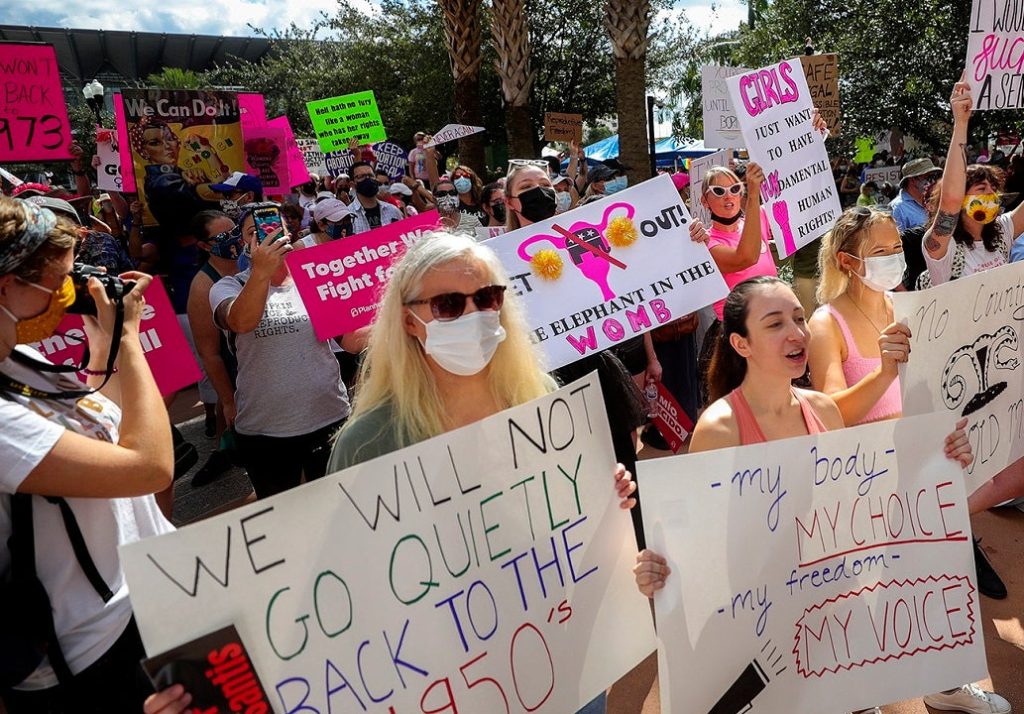Florida’s highest court recently issued rulings that upheld a 15-week ban on abortion and allowed voters to decide on a proposed constitutional amendment that would protect abortion rights. The court rejected an argument by the state Attorney General that the proposed amendment should be kept off the ballot. The decision has sparked a debate on the implications of the proposed amendment, with critics arguing that it could expand access to late-term abortions and eliminate regulations protecting women and girls seeking abortions. Despite concerns raised by opponents, the court’s decision stands, allowing the proposed amendment to move forward to the voters.
The debate surrounding the proposed amendment highlights the ongoing division on the issue of abortion in Florida, with proponents and opponents making strong arguments for their respective positions. The Florida Supreme Court’s decision to uphold the proposed amendment has been met with mixed reactions, with some expressing concerns about the potential impact on women’s health and safety. Supporters of the amendment argue that it is necessary to protect the right to abortion and ensure access to reproductive healthcare services. The decision has significant implications for the state’s abortion laws and sets the stage for a broader discussion on reproductive rights in Florida.
In addition to the ruling on the proposed constitutional amendment, the Florida Supreme Court also upheld the state’s ban on most abortions after 15 weeks of pregnancy. This decision paves the way for a six-week abortion ban signed into law by Governor DeSantis to take effect. The rulings come at a time when abortion rights supporters are seeking to enshrine the right to abortion in state constitutions following the overturning of Roe v. Wade by the U.S. Supreme Court. Similar initiatives are underway in other states, such as Maryland and New York, where voters will decide on proposed constitutional amendments related to abortion and reproductive rights.
Critics of the proposed constitutional amendment argue that it is misleading and could have far-reaching implications for abortion laws in Florida. They contend that the language of the amendment hides its true purpose, which they believe is to allow abortions up to the time of birth. Concerns have been raised about potential risks to women and girls seeking abortions, as well as the elimination of existing health regulations. Despite opposition from some quarters, the Florida Supreme Court’s decision to uphold the amendment reflects a shift in the state’s approach to abortion rights and reproductive healthcare.
The legal battle over abortion rights in Florida underscores the complex and contentious nature of the issue. The rulings by the Florida Supreme Court have significant implications for the state’s abortion laws, as well as broader conversations about reproductive rights and healthcare. The decision to allow voters to decide on the proposed constitutional amendment represents a key milestone in the ongoing debate over abortion in the state. As the issue continues to divide lawmakers, activists, and the public, it remains to be seen how the outcome of these legal battles will shape the future of abortion rights in Florida and beyond.
Overall, the rulings by the Florida Supreme Court signal a shift in the state’s approach to abortion rights, paving the way for a broader discussion on reproductive healthcare and women’s rights. As the debate continues to unfold, stakeholders on all sides of the issue will need to navigate a complex legal landscape and work towards a resolution that reflects the diverse perspectives and concerns of the public. The decision to uphold the proposed constitutional amendment and the 15-week abortion ban represents a significant development in the ongoing struggle for abortion rights in Florida.


